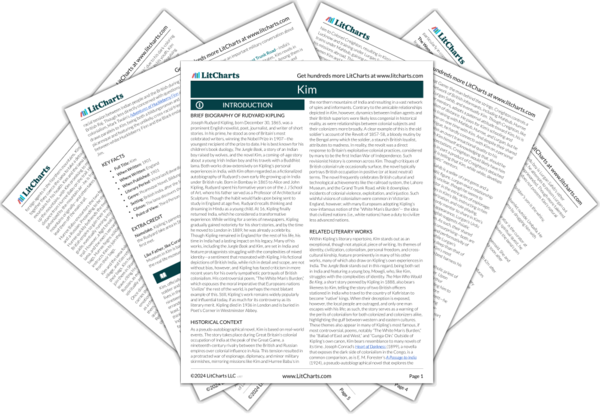The Russian’s ignorance proves to be his downfall as the coolies, deeply offended by his attack on a holy man, immediately turn on him. This illustrates the Russian’s extreme arrogance, believing himself to be invincible, despite being massively outnumbered. More broadly, this incident acts as a cautionary metaphor for colonialism, suggesting that overly arrogant European countries may meet a similar fate as the Russian.
